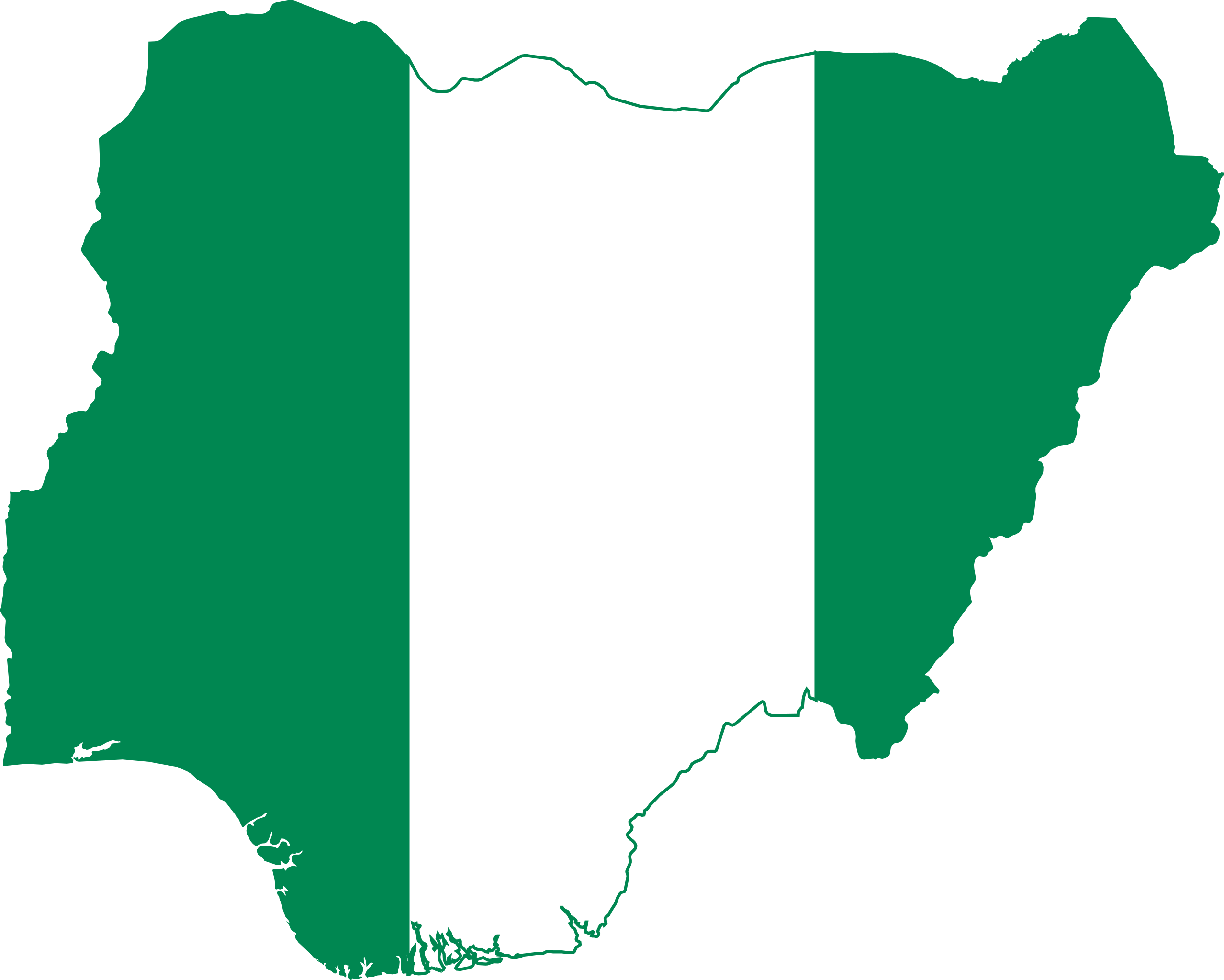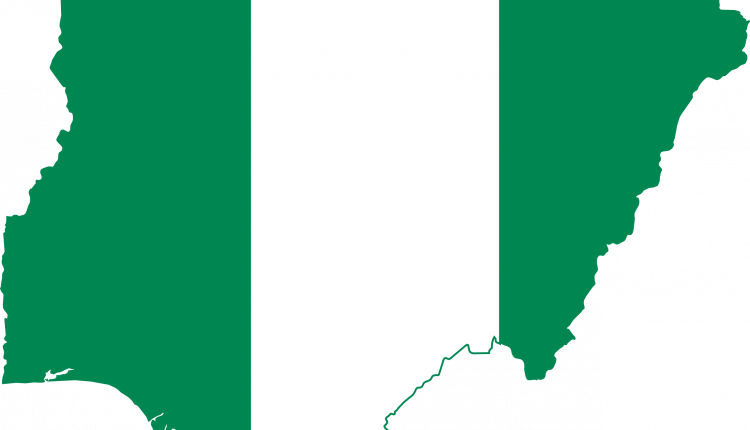Nigeria: Can a nation divided by religion conquer the 4IR? – Richard Odusanya.
The Fourth Industrial Revolution (4IR)—characterized by the fusion of the digital, biological, and physical worlds, as well as the growing utilization of new technologies such as artificial intelligence, cloud computing, robotics, 3D printing, the Internet of Things, and advanced wireless technologies, among others—has ushered in a new era of economic disruption with uncertain socio-economic consequences for Africa. However, Africa has been left behind during the past industrial revolutions. Will this time be different? This article seeks to encourage Nigerians towards bridging ethnic and religious divide…in an effort to attain industrialization through political cohesiveness, bearing in mind that, Nigeria being the largest black population and the giant of Africa cannot be ignored in the scheme of things.
National prosperity is created, not inherited. It does not grow out of a country’s natural endowments, its labor pool, its interest rates, or its currency’s value, as classical economics insists. A nation’s competitiveness depends on the capacity of its industry to innovate and upgrade. Companies gain advantage against the world’s best competitors because of pressure and challenge. They benefit from having strong domestic rivals, aggressive home-based suppliers, and demanding local customers.

In a world of increasingly global competition, nations have become more, not less, important. As the basis of competition has shifted more and more to the creation and assimilation of knowledge, the role of the nation has grown. Competitive advantage is created and sustained through a highly localized process. Differences in national values, culture, economic structures, institutions, and histories all contribute to competitive success. There are striking differences in the patterns of competitiveness in every country; no nation can or will be competitive in every or even most industries.
Read Also: ZAMFARA HEAD OF SERVICE CALLS FOR CITIZEN’S PARTICIPATION…
Ultimately, nations succeed in particular industries because their home environment is the most forward-looking, dynamic, and challenging. A small country like Isreal can be a great nation… Since a nation is nothing more than a collection of people living within a set of physical borders, we can measure the greatness of a nation in the same way, by the contributions they have made to the world, to mankind. Going forward, our beloved country Nigeria, as a nation blessed with both natural resources and human..we need to refocus on selfless acts like: Dr Martin Luther King Jr, Nelson Mandela (Madiba), Julius Nyerere (Nwalimu), as we approach the 2023 general elections with a mindset of electing a TRANSFORMATIONAL leader who can navigate us through the storm back to the promised land.
Interestingly, political rhetorics are generally subjective in nature. So the interpretation and take out of same are subjective. One man’s truths, is another man’s lies. Besides, the unexpected always swing surprises. The rejected and condemned stone, may end up being the key pillar of expected transformation. Nigeria, as a nation destined for greatness, we need dynamic leadership and vibrant citizenry, particularly at a time like this in the bid to catch up with the civilized world and globalized economy in these era of fourth industrial revolution ‘4IR’. As a matter of fact, rhetoric is the art of persuasion, which along with grammar and logic is one of the three ancient arts of discourse. Rhetoric aims to study the techniques writers or speakers utilize to inform, persuade, or motivate particular audiences in specific situations. Particularly, as we approach the 2023 general elections.
For a small country, Israel holds a place of great importance for three of the world’s major religious groups. The modern Jewish state is not only the “Promised Land” for Jews, but the only country in the world where they form a majority of the population. For Christians, Israel is the “Holy Land,” because it is the place where Jesus’ life and death unfolded. And, for Muslims, Jerusalem is the place where the Prophet Muhammad ascended to heaven. Although Israel’s religious significance dates to ancient times, the country still receives frequent international attention due in large part to near-constant religious, ethnic and political conflicts.
Instructively, in a multilingual Nigerian society as well as in similar countries like Australia, India or even in seemingly homogeneous linguistic societies like Britain, language planning, development and policies are sine qua non. As such, political scientists define “nation” as a people with a shared sense of history and identity. The aspiration is to turn a state into a nation-state. Some will instinctively argue that Nigeria is not a nation but a country, basically a geographical expression or a political entity. In the well-quoted words of Chief Jeremiah Olaniyi Obafemi Awolowo (Awo), the unarguably nationalist, as contained in his book, ‘Path to Nigerian Freedom’ (1947), “Nigeria is not a nation. It is a mere geographical expression. There are no ‘Nigerians’ in the same sense as there are ‘English’, ‘Welsh,’ or ‘French’.” However, increasingly, ‘nation’ and ‘country’ are now used interchangeably, perhaps as a reflection of a changing world.
This article examines whether the choice of an electoral system in a culturally plural society can affect the potential for future violent conflict. We find that it can, but that there is no single electoral system that is likely to be best for all divided societies. We distinguish four basic strategies of electoral system design. The optimal choice for peacefully managing conflict depends on several identifiable factors specific to our beloved country Nigeria, including the way and degree to which religion and ethnicity are politicized, the intensity of conflict, and the demographic and geographic distribution of ethnic groups. In addition, the electoral system that is most appropriate for initially ending internal conflict may not be the best one for longer-term conflict management. In short, while electoral systems can be powerful levers for shaping the content and practice of politics in divided societies, their design is highly sensitive to context.
Conclusively, religion in Nigeria (the most populous African country with a population of over 200 million in 2018) is diverse. Nigeria’s constitution ensures freedom of religion and the country is home to some of the world’s largest Muslim and Christian populations, simultaneously. Nigeria is divided roughly in half between Muslims, who live mostly in the north, and Christians, who live mostly in the south; indigenous religions, such as those native to the Igbo and Yoruba ethnicities, are in the minority. Therefore, the need for cohesiveness bearing in mind our diversity.
ARISE ‘O COMPATRIOTS.
Richard Odusanya is a Social Reform Crusader and the convener of AFRICA COVENANT RESCUE INITIATIVE ACRI.

